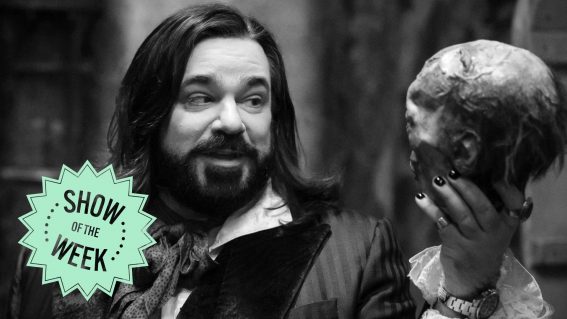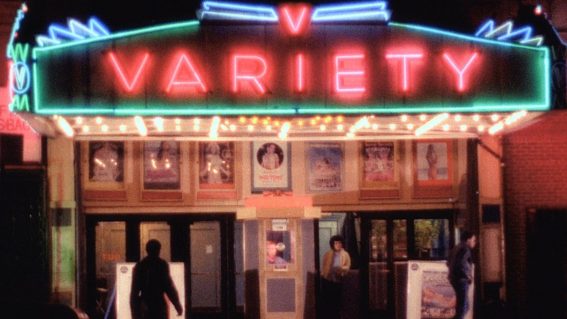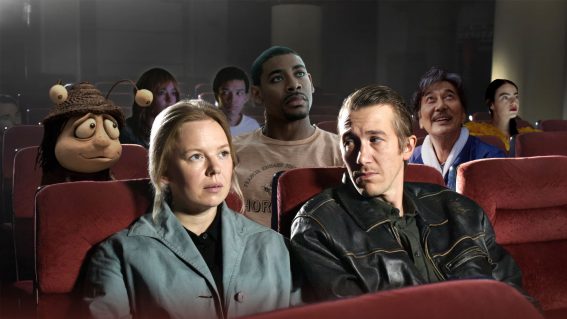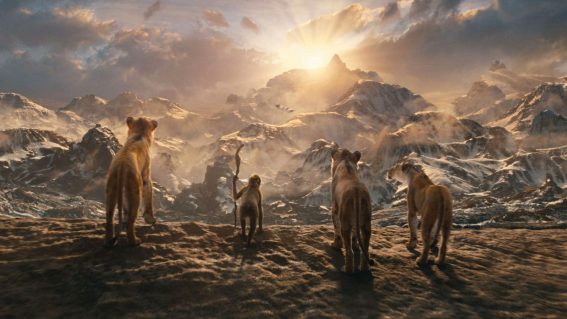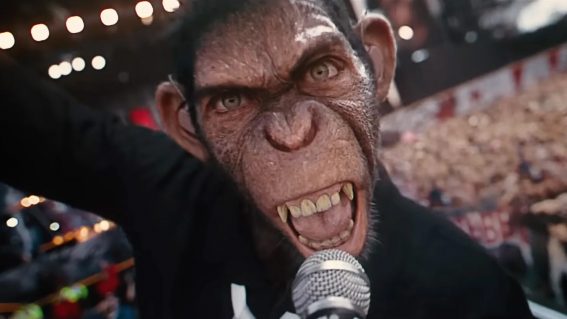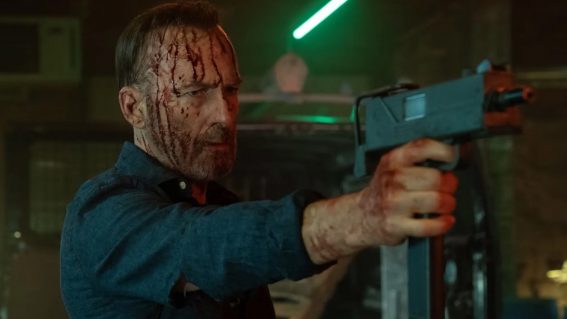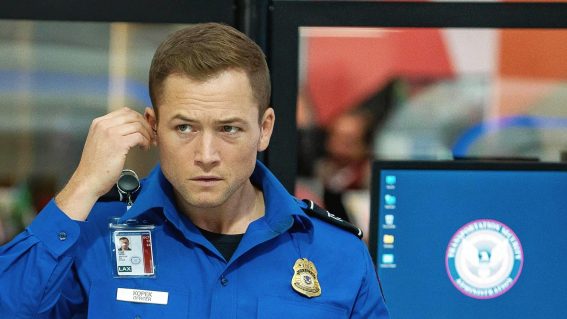The way of the Gunn – from Troma to Guardians of the Galaxy and now DC
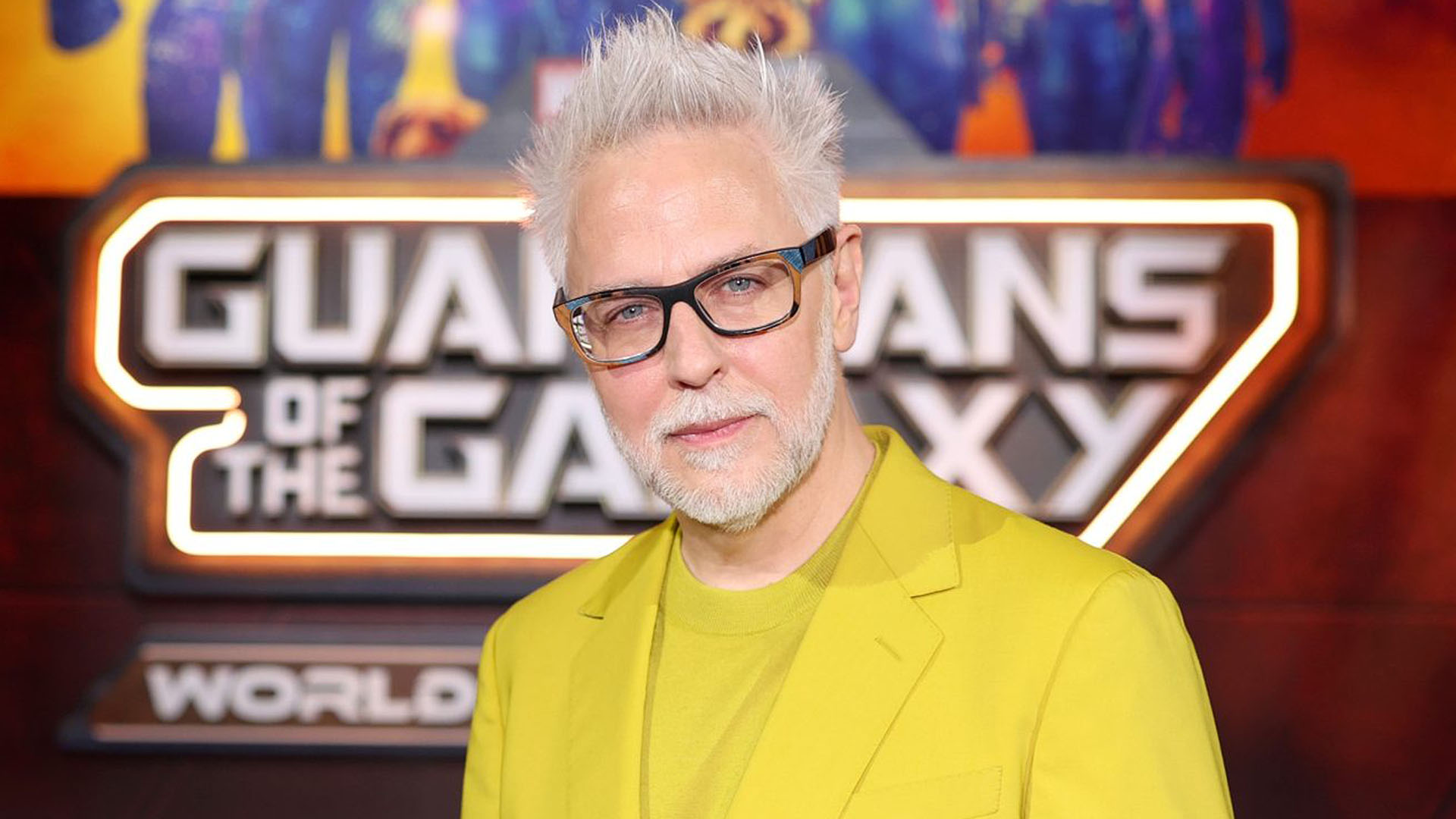
With the release of Guardians of the Galaxy Vol. 3, director James Gunn’s time at Marvel is done… again… for now… Dominic Corry looks at the filmmaker’s journey from Z-movie factory Troma Films to Gunn’s new role atop DC.
Guardians of the Galaxy Vol. 3
One of the most appealing and widespread filmmaker origin stories is the “cut their teeth working for B-movie maestro Roger Corman” legend that applies to everyone from Martin Scorsese to Joe Dante to James Cameron.
Appropriately, James Gunn’s filmmaker origin story is a scuzzy version of that oft-told tale: he started out working under Z-movie maestro Lloyd Kaufman at the notoriously shitty Troma Films, where Gunn wrote 1996’s Tromeo & Juliet, his first credited film work.
It’s a satisfyingly punk-leaning beginning that befits Gunn’s outsider/insider dynamic. With a filmography that reveals a lifelong devotion to popular culture, especially horror and superheroes, Gunn is a filmmaker with passions well-suited to the modern market’s demands.
Many pop culture fiends of his generation graduated to studio filmmaker, but few of them have as steady a hand as James Gunn has revealed himself to possess, and almost none of them became studio executives, like Gunn just has.
An unabashed pop culture fetishist and gleeful embracer/subverter of tropes, Gunn’s name on a project still promises some degree of originality, even if he is as deep in the world of intellectual property exploitation as it gets. Things may not necessarily ultimately always cohere in his movies, but you can always discern something resembling genuine passion in whatever he does. Which is to be cherished.
Through his early writing successes and into a still-on-the-up directing career, Gunn has navigated the perilous waters of major intellectual property adaptation with more alacrity and grace than most. Let’s chart some of that journey.
Gunn’s first post-Troma breakout was as the writer of indie superhero satire The Specials (2000), which was somewhat overshadowed at the time by Mystery Men, a more expensive studio version of a similar idea. Both are splendidly weird films, and Gunn’s movie was notably directed by Craig Mazin, who would go on to create Chernobyl and The Last of Us. Mazin also made Superhero Movie (2008), one of the last gasps of the excruciating “_______ Movie” spoof trend.
When I spoke to Gunn for the first Guardians of the Galaxy movie, he said that The Specials helped garner him a reputation as a writer who could deftly handle a large number of characters in a superhero setting, and that Joss Whedon had sought his advice on that very matter before he directed The Avengers.
Although in no way a hit, The Specials (in which Gunn also appears, as does his ever-present brother Sean) obviously impressed the right people, as Gunn’s name started showing up on studio genre efforts like Scooby-Doo (2002, plus its 2004 sequel) and the Dawn of the Dead remake directed by Zack Snyder.
Both films stand as significant antecedents to the modern film marketplace—the former was a gently subversive (but still very audience-friendly) adaptation of a beloved piece of intellectual property, and the latter (a shockingly brutal effort that I consider to be one of the best films of the 00s) helped create the zombie-invested Hollywood landscape we currently exist in.
Having garnered enough juice at this point to start directing his own movies, Gunn came out of the gate swinging with Slither (2006), a gonzo slimey alien invasion horror comedy that betrayed a huge affection for the sub-genre, and stood as a clear lamentation for the lack of such films in the mainstream space. With big oozy practical special effects.
It didn’t set the box office alight, but it announced the arrival of a director with some very interesting proclivities. It also marked the beginning of Gunn’s long and glorious collaboration with character actor Michael Rooker, who would show up in every subsequent Gunn-helmed movie.
Gunn’s directing career wasn’t exactly off to the races after Slither, and he kept himself busy with some truly odd internet video projects (and the odd tweet) for the next few years before his second directorial feature: Super (2010).
Yet another superhero subversion, Super is an admirably dark outing that mixes Kick-Ass with Taxi Driver. Kevin Feige apparently really liked it, as he then hired Gunn to direct Guardians of the Galaxy, which was released in 2014.
It’s easy to take for granted now, but this was the first Marvel movie featuring characters that most people hadn’t heard of. From any perspective, Gunn did an extremely impressive job of getting audiences fired up about these heretofore unknowns, and in the process revealed his inner blockbuster savant.
As he told me during the aforementioned interview, Gunn had always wanted to make “films for everybody”. And now he was.
He went straight into working on Guardians of the Galaxy Vol. 2, while using his newfound clout to executive produce interesting smaller genre efforts like The Belko Experiment (2016), which he also wrote, and the surprisingly nasty “evil superman” riff Brightburn (2019).
When old bad tweets got him fired from the third Guardians movie, Marvel’s Distinguished Competition snapped him up to make 2021’s The Suicide Squad. Marvel eventually backtracked and hired Gunn back to make Vol. 3, but Gunn’s relationship with DC was about to shift to a whole new level.
After writing and directing Peacemaker, a TV series spin-off of The Suicide Squad with the greatest opening credits in television history, Gunn made his third GOTG film. It’s an emotional trilogy-capper that pulls together various threads from throughout his career, beginning with a Lloyd Kaufman cameo. Kaufman also showed up in Slither and the first GOTG film, and it’s nice to see Gunn isn’t afraid of his Troma past.
The shockingly frank vivisection elements of GOTG Vol. 3 betray Gunn’s best punk-ish tendencies, and there’s a whole section that takes place on an organic flesh-planet that can’t help but evoke Slither’s dermatogical shenanigans. Gunn couldn’t be deeper in the mainstream, but he’s still being true to himself.
And now, as (presumably) his last Marvel film hits theatres, Gunn is six months into the job of being co-head of DC’s film efforts, alongside TSS producer Peter Safran. Together they have been charged with charting the big screen future of the best-known superhero characters in the world. A thankless task from any perspective thanks to today’s angry fanboys, it’s hard to imagine anyone better suited to handling this toxic landscape than Gunn.
Plus it’s unprecedented for a filmmaker to be in this position, so the possibilities are exciting. First up is a “hopeful” Superman movie that Gunn is writing and directing himself. It feels like another level up for a filmmaker who has yet to get his hands on such an iconic property. As bad as I feel for Henry Cavil, I can’t wait to see what Gunn does with a new Superman, which will apparently follow a younger, more guileless version of the character. Here is my unasked-for, un-rumoured casting suggestion: Nicholas Hoult.
James Gunn’s come a long way from Tromeo & Juliet, but I like to think you can still discern his inner weirdo. And that’s a good thing.





